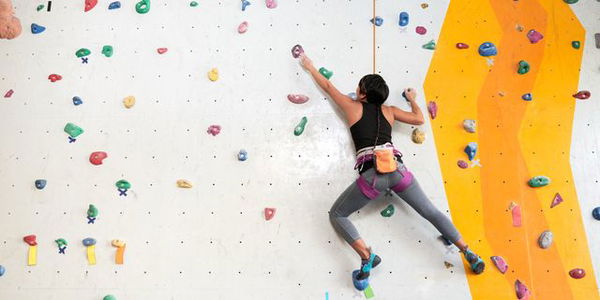

A lot of people on the spectrum have disparate lives, lives that others cannot imagine living. Some people struggle with the basic aspects of socializing and immersing in a community. But time and again, sports have proved to be something that people on the spectrum can rely on to make their lives easier. According to a blog by Portobello Institute, there are many athletes with autism who are involved in sports and some even compete in sports professionally. Chris Shepherd is one such individual, who has discovered that rock climbing helps him cope with his differences.
The way Shepherd describes it, it seems that rock climbing could be a perfect pursuit for anyone on the spectrum. This is what he has to say about the sport.
ADVERTISEMENT
Article continues below this ad
Rock climbing on the Spectrum and how it feels
Climbing on the spectrum is not merely a hobby. Climbing could be like a magic tonic that improves one’s capability to interact socially and lead a more holistic life. Shepherd, in his article published by UKC titled Unmasked – Climbing and Autism, writes, “I’d like to suggest that climbing and autism enjoy a unique relationship, beyond that of a typical special interest, and that climbing provides autistic people with a route to a more social and colourful existence.”

Individuals who deal with autism are liable to get confused with too much stimulus intake at one time. Therefore, instead of indulging in a wide variety of activities, they like to focus on a particular hobby. This is why, at times, they are unfairly labeled as ‘obsessive’.
Generally, the term ‘obsessive’ indicates a negative connotation. However, in climbing, obsession could be a good thing. According to Chris Shepherd, “Personally, the label “obsessive” was a label that was often used against me, and I’ve benefited greatly from the climbing community’s reclaiming of this term as a positive attribute.”
Not only does climbing help autistic individuals focus their energy, but it also helps them with a myriad of other issues.
Climbing could be a boon to autistic people
Climbing is a fun way that allows autistic individuals to be social without putting too much pressure on them. While there is still interaction, it’s considerably less one-on-one and more of a team exercise. It also reduces the stress of commitment. Rocks will always be present, and individuals on the spectrum can simply decide to show up one day.
ADVERTISEMENT
Article continues below this ad

Apart from this, climbing is a sport that has a simple and set routine. Therefore, feeling overwhelmed is out of the question. Hence, they don’t have to worry about following typical social conventions. The scope of repetition that climbing provides could be construed as a relief for autistic people. In many ways, climbing helps them ease into their differences. Moreover, it also helps them to accept these differences instead of fighting them. It seems the upsides of rock climbing, once revealed by the noted author Anna Fleming, are simply too many to keep count and Shepherd is a living proof of this.
ADVERTISEMENT
Article continues below this ad
Watch this story: 31-Year-Old Former Dallas Cowboys Tight End, Galvin Escobar, Tragically Passes Away In a Rock Climbing Accident
ADVERTISEMENT
ADVERTISEMENT
ADVERTISEMENT
ADVERTISEMENT

